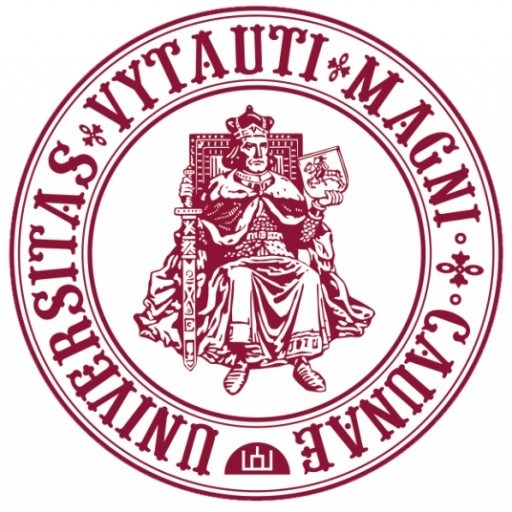Photos of university / #RutgersU
Cell and Developmental Biology at Rutgers University offers a comprehensive and engaging program designed to provide students with a deep understanding of the fundamental processes that govern life at the cellular and developmental levels. This program combines rigorous coursework, innovative laboratory experiences, and research opportunities to prepare students for careers in biomedical research, healthcare, education, and related fields. Students will explore the structure and function of cells, mechanisms of gene expression, cellular communication, and developmental processes that drive growth and differentiation. The curriculum is structured to build a strong foundation in molecular biology, genetics, biochemistry, and physiology, enabling students to grasp complex biological systems and their relevance to health and disease. Through hands-on laboratory exercises, students gain critical laboratory skills, including microscopy, molecular cloning, cell culture techniques, and experimental design. The program also encourages participation in research projects, providing students with valuable experience working alongside faculty members on cutting-edge scientific investigations. Students will have access to state-of-the-art facilities, such as advanced imaging and molecular analysis equipment, to support their research endeavors. In addition to laboratory work, the program emphasizes scientific communication, critical thinking, and problem-solving skills essential for success in scientific careers. Graduates of this program are well-equipped to pursue graduate studies, medical school, or careers in research and biotechnology industries. The curriculum is designed to be flexible, allowing students to tailor their education to fit their specific interests within cell and developmental biology. With a strong support system and a vibrant academic community, Rutgers University provides an ideal environment for students passionate about understanding the fundamental principles of life and applying them to address biological and medical challenges.
| First Year | |
|---|---|
| Molecular Biosciences Requirements - 23 credits | |
|
Fund of Molec Biosciences (16:695:538) |
6 credits |
|
Experimental Meth in Molec Biosci (16:695:539) |
2 credits |
|
Essential Skills I (16:695:551) |
1 credit |
|
Ethical Scientific Conduct (16:115:556) |
1 credit |
|
Lab Rotation I and II (16:695:615) |
4 credits |
|
Mini-Courses in Molec Biosciences (16:695:621-638, 1 credit each) |
6 credits |
|
Essential Skills II (16:695:552) |
1 credit |
|
Lab Rotation III (16:695:615) |
2 credits |
| Second Year | |
| CDB Requirements | |
|
Adv Developmental Biology (16:148:550) |
3 credits |
|
Advanced Electives (Total of 1 in 2nd or 3rd year) |
3 credits |
|
Seminar in CDB (1 per semester) |
2 credits |
|
Prog Reports of MBS Students (1 per semester) (16:695:600) |
|
|
Research Credits (variable) |
|
| Third Year | |
| CDB Requirements | |
|
Seminar (from any program) |
1 credit |
|
Prog Reports of MBS Students (1 per semester) (16:695:600) |
|
|
Research Credits (variable) |
|
| Fourth Year | |
| Graduate Program in Biochemistry & Molecular Biology Requirements | |
|
Research Credits (variable) |
1 credit |
|
Prog Reports of MBS Students (1 per semester) (16:695:600) |
|
16:115:558 Ethical Scientific Conduct Refresher. This course is required of all 5th year graduate students as well as MD/PhD in the 3rd year of PhD. This is a case-based course that reviews the most important topics in Responsible Conduct of Research. It complies with NIH requirements.
Total course credits: 32, Thesis Research (148:701,702): 24 credits minimum. The Graduate School requires a minimum of 72 credits consisting of coursework and thesis research for the Ph.D. degree.
Qualifying Examination
The Ph.D. qualifying examination consists of two parts. The first part is a written comprehensive test. The second will be an oral examination based on a proposal written on the area of the student’s dissertation research.
Part I of Qualifying Examination
To be held in June of the first year or after completion of the set of 4 core courses. The students will be given a selection of journal articles at least 14 days prior to the exam. There will be a two-day written exam related to these articles to test basic knowledge, comprehension of the papers, and experimental design. The questions can be specific as well as wide-ranging.
The examination will be prepared and graded on a pass/fail basis by a committee of faculty members. A student must have a GPA of at least 3.0 to sit for the examination and must pass the examination to remain in the Ph. D. program.
If the performance of a student on the examination is unsatisfactory, the student may be given another chance. If that examination is still unsatisfactory the student will be required to terminate from the program.
Part II of Qualifying Examination
Research Proposal: The student should have a permanent thesis advisor by the beginning of their second year of Ph.D. studies, and it is then that the student should work towards completing part II of the qualifying examination. Since he/she will be in the initial stages of the research problem the research proposal presents an opportunity to thoroughly research the background of the problem and to develop a logical research plan for the dissertation research. Preliminary research results are not required for this proposal and completion of this part of the examination.
The proposal will consist of an introduction and background relevant to the proposed study, the significance of the proposed study, and the experimental plan. It will be presented to a committee of at least 4 members (the advisor, 2 other faculty members of the CDB faculty, and an outside member). The presentation will be followed by questions from the committee relating to problems that may arise with the proposed research plan, expected results and their interpretation and alternate experimental strategies.
GUIDELINES ON TIME FOR REVIEW AND ASSESSMENT OF QUALIFYING PAPERS, THESES AND DISSERTATIONS
GENERAL ACADEMIC GUIDELINES
Academic Standards and Termination: A student is required to carry a cumulative GPA of 3.0 to remain in good standing in the program. It is also expected that the student will receive a grade of “Satisfactory” (S) for research credits. Students failing to achieve the 3.0 GPA will be sent a warning letter and be given a year to remedy that deficiency, and to bring his/her cumulative GPA up to 3.0 or better. Failing to do so will result in termination from the program. A notice of termination will be sent to the Dean of the Graduate School- New Brunswick.
Progress Report: For students that have passed their qualifying examination and admitted to the Ph.D. candidacy, he/she must meet with a thesis advisory committee at least once every academic year and submit a written progress report to the Program Office by June 15. The Progress Report will be used by the faculty in its annual Review of student accomplishment. It is essential that the student’s research advisor make sure that each student maintains good progress toward his/her degree and schedules annual meetings with his/her thesis advisory committee.
Language Requirements: Competence in written English is required. The Cell and Developmental Biology Graduate Program has no foreign language requirement.
Registration Requirements: All students are required to maintain continuous registration until the completion of the final examination. Students will have to re-apply for admission if there is a lapse in their matriculation. Ph.D. students, who are on campus, including all those assistantships and everyone else whose academic activities are here, must register for a minimum of 3 credits per semester. Ph.D. students that are away from the campus (i.e. Not working or residing in the tri-state area), must register for a minimum of 1-credit of research. For M.S. students, the minimal registration requirement is MATRICULATION CONTINUED (148:800, 0 credit). Contact either the program office or the graduate school for specifics.
Restriction on the enrollment in the medical School courses: Enrollment in the Medical School courses requires permission of the student’s advisor and the course instructor. Normally, a student may take no more than 7 credits of course work offered by the Medical School in any given semester.
Requirements for the transfer from non-matriculated to matriculated status: Non-matriculated student who wishes to be considered for admission into a degree program may submit a full application to the Graduate School for consideration of admission to the CBD program.
- Online application
- Application fee (non-refundable $70). Please see graduate admissions website for information on fee waivers.
- One official transcript from each post-secondary institution attended. Please use the upload links in the Grad Portal to upload your own, unofficial transcript copies. This will enable the Admissions Committee to review your application without waiting for individual institutions to send originals. Please also request that your previous institutions forward official transcripts.
- A personal statement; explain your motivation for pursuing a PhD degree; describe your previous research experience(s) highlighting objectives; challenges and outcomes; if there is something you feel the admissions committee should know about you, include it in your statement
- Three letters of recommendation. Letters from faculty who supervised your research or know you well from a classroom experience will help the admissions committee evaluate your motivation, work ethic, curiosity, initiative, persistence, intellectual ability and willingness to work with others
- GRE general test (all applicants) and TOEFL (for international applicants). GRE subject test scores are optional.
- Curriculum Vitae (resume) may be uploaded as supporting documentation
Scholarships
Students admitted to the PhD programs in Molecular Biosciences receive a fellowship in their first year that includes a stipend, health insurance and tuition. In 2016, the stipend was $29,605. Students making good progress toward the degree can anticipate full funding until the PhD is awarded.
In addition to this, many students apply for and receive competitive state and national fellowships to support their training.
The Cell and Developmental Biology program at Rutgers University offers students an in-depth exploration of the fundamental processes that regulate cellular functions and developmental mechanisms in living organisms. This program is designed to provide a comprehensive understanding of cell structure, function, and communication, as well as the molecular pathways that govern development from the earliest stages of embryogenesis to the formation of complex tissues and organs. Through a combination of coursework, laboratory research, and seminars, students gain hands-on experience in modern techniques such as microscopy, molecular biology, genetics, and bioinformatics. Rutgers' faculty includes renowned experts in cell biology, developmental biology, genetics, and related fields, providing students with mentorship and opportunities for collaborative research. The program prepares graduates for careers in biomedical research, biotechnology, healthcare, or for further academic pursuits such as graduate or professional school. It emphasizes critical thinking, experimental design, and rigorous scientific methodology, equipping students with skills applicable in diverse scientific and medical fields. The curriculum typically covers topics like cellular signaling, gene expression regulation, stem cell biology, tissue engineering, and developmental genetics. Students may also have the chance to participate in cutting-edge research projects, attend scientific conferences, and publish their findings. Rutgers’ state-of-the-art research facilities and resources support students’ academic and professional development. The program aims to contribute to the advancement of knowledge in cell and developmental biology and to cultivate future leaders in research and education within the biological sciences.









